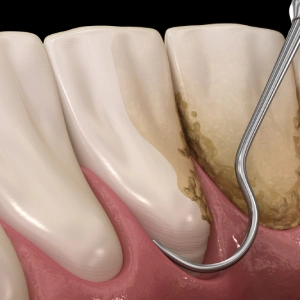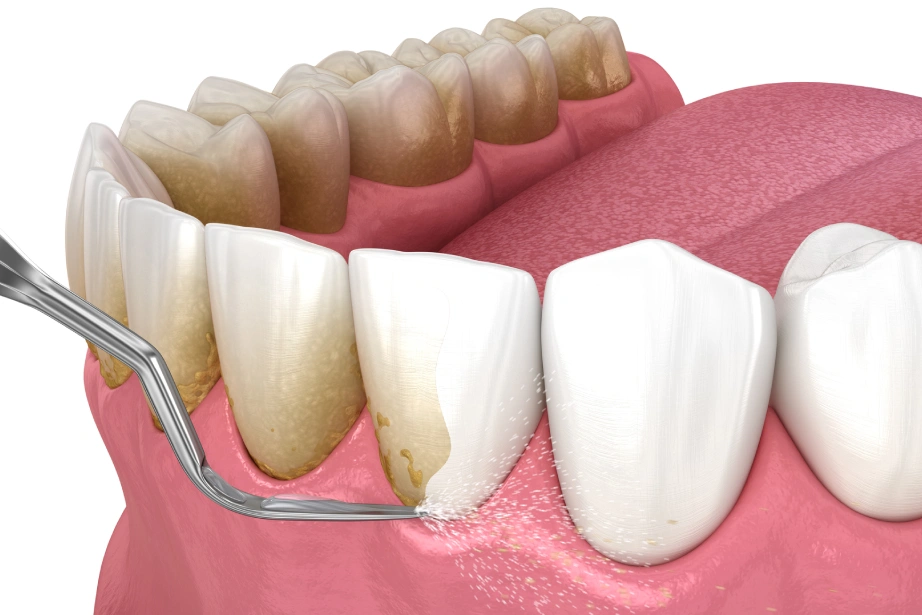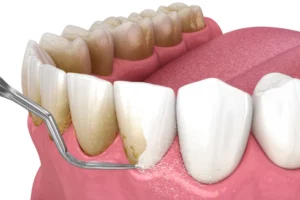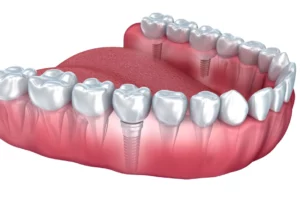Scaling teeth is a standard dental procedure aimed at removing plaque and tartar buildup to maintain oral health. However, like any dental treatment, scaling comes with certain risks and potential side effects. One of the primary risks associated with scaling is tooth sensitivity, which can occur when the enamel is exposed during the cleaning process. Additionally, some individuals may experience gum irritation or bleeding following scaling, especially if they have sensitive gums or underlying gum disease. In rare cases, aggressive scaling may lead to damage to the tooth enamel or gum tissue. It’s essential to discuss any concerns with your dentist before undergoing scaling and to follow post-treatment instructions carefully to minimize the risk of complications. Regular dental check-ups and cleanings can help prevent excessive plaque and tartar buildup, reducing the need for scaling and lowering associated risks.
What is Dental Scaling?
Dental scaling is a professional dental procedure performed by a dentist or dental hygienist to remove plaque, tartar (calculus), and bacteria from the surfaces of the teeth and along the gumline. It is typically part of a routine dental cleaning or periodontal maintenance appointment. Scaling involves the use of specialized instruments, such as scalers and curettes, to carefully scrape away the hardened deposits that cannot be removed by regular brushing and flossing.

What Can I Expect Before My Treatment?
Before undergoing dental scaling, you can expect your dentist or dental hygienist to conduct a thorough examination of your oral health. This may involve reviewing your dental and medical history, performing a visual inspection of your teeth and gums, and possibly taking dental X-rays to assess the extent of tartar buildup and any underlying issues. Your dentist will discuss the scaling procedure with you, including what to expect during and after the treatment, as well as any potential risks or complications. You may be advised to avoid eating or drinking anything for a certain period of time before your appointment, especially if sedation or anesthesia will be used during the procedure. It’s important to inform your dentist about any medications you are taking, as well as any health conditions or allergies you may have. Additionally, if you have dental anxiety or concerns about the procedure, don’t hesitate to discuss them with your dentist beforehand. Overall, proper preparation and clear communication with your dental care team will help ensure a successful and comfortable dental scaling experience.
What Happens After Tooth Scaling and Root Planing?
Are There Any Side Effects of Teeth Cleaning?
While teeth cleaning, also known as dental prophylaxis, is generally considered safe, some individuals may experience minor side effects afterward. These side effects typically include:
Pain and Discomfort
Pain and discomfort are common side effects that some individuals may experience after teeth cleaning. This discomfort typically manifests as mild soreness in the gums, especially if tartar buildup was significant or if the gums are sensitive. It’s essential to note that this discomfort is usually temporary and should subside within a day or two as the gums heal. Over-the-counter pain relievers and gentle oral care practices, such as rinsing with warm saltwater, can help alleviate any discomfort experienced after teeth cleaning. However, if the pain persists or becomes severe, it’s essential to contact your dentist for further evaluation and treatment.
Tooth Sensitivity
Tooth sensitivity is another potential side effect of tooth cleaning, particularly after scaling. This sensitivity can occur when the protective layer of enamel is temporarily exposed due to the removal of plaque and tartar buildup. As a result, individuals may experience heightened sensitivity to hot, cold, sweet, or acidic foods and beverages. While this sensitivity is usually temporary, it can be uncomfortable. Using toothpaste designed for sensitive teeth and avoiding extreme temperatures or acidic foods can help alleviate discomfort. If sensitivity persists or worsens, it’s advisable to consult with a dentist for further evaluation and management.
Bleeding
Bleeding gums are a common side effect of teeth cleaning, especially during and immediately after the procedure. This bleeding occurs due to the removal of plaque and tartar buildup from the gum line, which can irritate the gum tissue and cause it to become inflamed. While some bleeding is normal during dental cleaning, excessive or persistent bleeding may indicate underlying gum disease or other oral health issues. It’s essential to inform the dental hygienist if you experience prolonged bleeding or if it becomes severe. They can provide additional treatment or recommendations to address the issue and promote gum health.
Spacing
Spacing, or gaps between the teeth, can sometimes occur as a side effect of teeth cleaning. This can happen when the cleaning process removes plaque and tartar buildup, revealing underlying spacing issues that were previously masked. Additionally, if the teeth were crowded before cleaning, removing plaque and tartar buildup can create more space between the teeth, resulting in noticeable gaps. While spacing after teeth cleaning is usually temporary and resolves as the gums heal, it’s essential to discuss any concerns with your dentist or hygienist. They can assess the spacing and recommend appropriate treatment options, such as orthodontic treatment or dental bonding, if necessary, to address the issue and achieve optimal oral health and aesthetics.
Infection
How Is the Recovery Process?
The recovery process after tooth scaling typically involves minimal discomfort and short-term side effects. Immediately following the procedure, it’s common to experience some mild gum tenderness or sensitivity, which usually resolves within a few days. Patients may also notice slight bleeding or swelling in the gums, but these symptoms typically diminish quickly. To aid in recovery, dentists may recommend gentle oral hygiene practices, such as using a soft-bristled toothbrush and avoiding hard or spicy foods that could irritate the gums. It’s essential to follow any post-scaling instructions provided by your dentist to ensure optimal healing and prevent complications. If you experience prolonged or severe discomfort, persistent bleeding, or signs of infection, it’s important to contact your dental professional promptly for further evaluation and guidance. Overall, the recovery process after tooth scaling is usually straightforward and well-tolerated, with most individuals returning to their normal activities shortly after the procedure.




